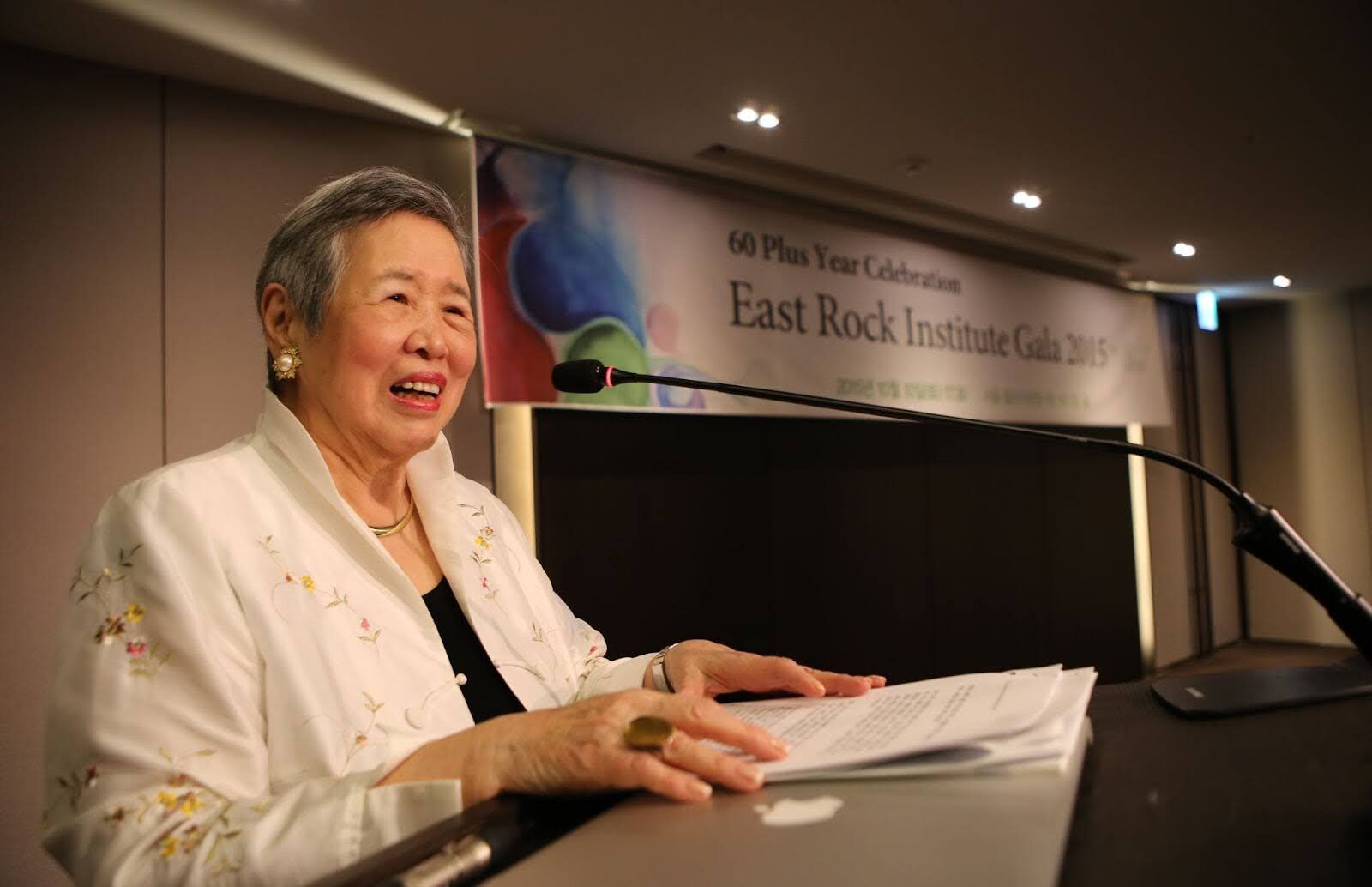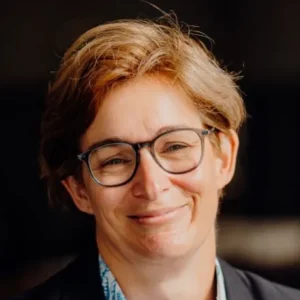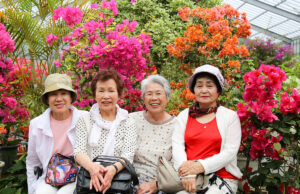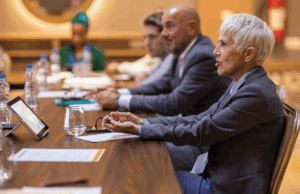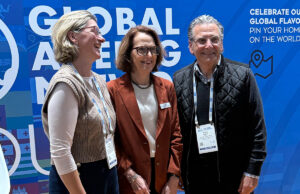In January 2025, 48 high school students from Jinju, South Korea, while on a special trip to the United States—which included visits to world-famous American universities including Yale, Harvard, M.I.T., and Princeton—also made time for a stop at Whitney Center, a LeadingAge-member life plan community in Hamden, Connecticut.
The students were the latest to take part in a cultural competency and leadership program first inspired 16 years earlier by a remarkable Whitney Center resident, Dr. Hesung Chun Koh. The program is a partnership between Whitney Center, Yale School of Nursing, Sunshine University Korea, and East Rock Institute (ERI), an organization Koh co-founded and serves as president emerita. The visit was arranged by Professor Jungki Kim of Changwon University, Korea, who has been involved in Koh’s Cross-Cultural Aging Initiative (CCAI) program.
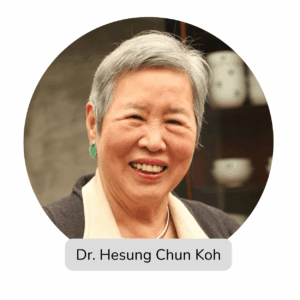
“They were expecting me to give a lecture,” says Koh, “but instead I gave a short introduction, and then we broke up into a small-group session. I asked each group to [talk about] what leadership means, and what they see in America, and cultural diversity. Afterwards, each group sent their student reporter to tell us what they have learned.” She also shared a summary of her concept of authentic leadership, involving nine tenets—concepts Koh describes as “kind of a hybrid of Korean and American values I put together as a kind of touchstone.”
Dr. Koh, born in Korea, emigrated to the U.S. in 1948 as an exchange student at Dickinson College, earning degrees in economics and sociology, but could not return home because of the Korean War. After graduation, she married, and received masters’ and doctoral degrees in sociology and anthropology at Boston University (BU) in the 1950s, and launched a long career as a scholar of comparative culture, teaching both at BU and Yale (while also raising six children). She has also been a visiting professor at the National Museum of Ethnology in Osaka and at the International Research Center for Japanese Studies in Kyoto.
Her late husband, Kwang Lim Koh, was a scholar of international law and comparative government, and a diplomat who was at one time South Korea’s acting ambassador to the United States, and later led the South Korean mission to the United Nations. In 1952, the Kohs founded the East Rock Institute, which Dr. Koh described in a 1989 interview as a center “to encourage cultural understanding between East Asia and the United States. … “with an emphasis on Korean culture, Korean-Americans and their relations with America.”
Koh’s work has always been anchored in her own experience bridging two cultures and understanding their differences and similarities. “Because society is becoming increasingly diverse,” she said, “and understanding and appreciating people whose ideas are different is one of our goals, cultural competency is how you can live in more than one culture.” Her first contact with the Global Ageing Network came in 2012, when she met Executive Director Katie Smith Sloan along with Robyn Stone, co-director of the LeadingAge LTSS Center @UMass Boston, on a trip to South Korea along with Whitney Center President and CEO Mike Rambarose.
While on a later trip to South Korea for a conference, Koh and Stone were invited to visit Jeju National University, located on Jeju Island, often called “Longevity Island” for its residents’ longer-than-average lifespans. “Dr. Koh is a legend in her home country, as well as in her state of Connecticut and her retirement community,” said Stone. “I had the pleasure of travelling with her … and was able to experience the real Korea—the sights and sounds of Seoul, the wonderful food, the culture through visits to markets, senior living communities, and senior centers. The trip was so fitting—and being with Dr. Koh makes you understand the true impact of a hero.”
Speaking of Jeju Island, Koh said, “They have something to teach us. The island has a unique history of political exiles, unique housing and unique food, a unique male and female division of labor, and is much more futuristic.” With Koh’s encouragement, Dr. AeDuck Im of the Jeju National University Island Research Institute has studied South Korea’s Kyongno Dang model—which offers meals, activities, and other services for older adults—as well as service models at Whitney Center and at Penn Asian Senior Services (PASSI), a LeadingAge member in Philadelphia, Pennsylvania.
“We seniors try to transmit our wisdom of life to the younger generation, who are physically able and living in the [world of] rapidly advancing technology,” Koh said. “We can teach and learn from each other. In an increasingly diverse world, the cultural aspects of aging need to be emphasized. Culture is like the air. It is pervasive and essential, yet language is not adequate for effective communication of various cultural differences. This is where art, music, drama, or audiovisual materials are useful.”
Koh is herself an artist, practicing Asian brush painting, which she describes as an effective form of cross-cultural communication, activating the emotional side of our brain, also helpful in working with those with memory loss, and for intergenerational teaching and learning. She has held solo art exhibits in Kyoto, Seoul, and Connecticut.
Katie Smith Sloan is an admirer of Koh’s commitment to cross-cultural learning and collaboration to achieve greater understanding. “Her vision to bring to Korea the best of ageing services around the world is consistent with her core belief that learning does not stop at borders. This is a belief that is at the heart of the Global Ageing Network’s work,” Sloan said.
For much more detail on Dr. Koh’s extensive career, see this profile from the Institute for Korean-American Studies.
